
In the month or so we’ve experienced of the Trump transition, the election outcome only appears more and more insane.
Somehow, a man who is now installing a coterie of conmen, cranks, weirdos, rapists, professional dum dums, and oligarchs, managed to win a (slim) majority of voters apparently motivated by populist sentiments of taking down the elites and making the government work for the common man.
Because this outcome is so obviously absurd, there has been significant handwringing and gnashing of teeth as the river of recriminations flows through the discourse. Sticking with a pledge I made at this newsletter less than a month ago I’ve been doing my best to avoid allowing myself to become “irritated” by these things because giving in to this irritation does not lead me to anywhere productive.
And yet, burying my head in the sand and waiting for the tsunami of Trump-related horrors to wash over the world doesn’t do much for my spirit either. The question of what (if any) political strategy might’ve defeated Trump has been the stuff of considerable infighting among the pundit class with various “online warriors” battling for supremacy. This is an extremely uninteresting question to me, personally. If it’s interesting to you, I’ll point towards two recent columns by
that capture where my sentiments lay, “Harris Advisors Blame Everything but Themselves for Their Loss,” and “Centrist Democrats Should Stop Blaming Progressives for Harris’s Loss.”I look at it this way: If a billion dollars is not sufficient in terms of resources to defeat Trump, either your campaign was bad, or we need to fundamentally change the nature of things to make Trumpist populist appeals less appealing and less popular.
If we need more reason to believe that fundamental change is necessary, consider the mix of horror and glee that greeted the murder of UnitedHealthcare CEO Brian Thompson. This sort of act should shock the conscience, and yet the hoodie-wearing shooter is being treated in some quarters as a folk hero, a cold-blooded murder in the streets of New York a cause of celebration.
How much darker can things get? My belief is that this brand of darkness plays into the Trump narrative, that we live in a shithole world and we need a champion to pull us out of it. The problem is that Trumpism thrives on perpetual division. Spectacle like people being murdered in the street is the lingua franca of Trump. The idea that any of his policies will unify cross racial or cross class interests is absurd.
The thing is, though, if you look out at the world, there’s many many people trying to think about these problems in ways that attempt to alleviate the inequalities that give rise to discontent and rage, making the ground fertile for a Trumpist politics.
Change may seem daunting, but it is not impossible because the United States is such an enormously wealthy nation with incredible resources to draw on should we choose to do so. We do not lack the material or means to pull ourselves out of this.
We could choose differently. It’s daunting, but not impossible. I’m the furthest thing from an optimist, and yet even I still believe this.
Since this is a newsletter about books, I’m going to share some of the books that I think are most worth considering when it comes to rethinking society. I recommend them all.
When I first read The Sum of Us: What Racism Costs Everyone and How We Can Prosper Together by Heather McGhee, I thought it was an absolute game-changer in terms of how we could talk about societal problems in a way that acknowledges reality - yes, structural racism is real and still pervasive today - without getting bogged down in fruitless culture warring. McGhee shows how these structural inequalities harm everyone, by, for example, leading us to underinvest in public good like schools, health care, etc… and that by joining in solidarity around shared prosperity and increased contributions to the common good by the ultra wealthy, we would experience a “win-win” scenario.
The book made a solid splash and got a fair amount of attention, but I feel like it has largely faded from view. Some of this may be because McGhee is too serious a person to engage in online warring with the likes of (redacted) who thrive by drawing attention to themselves, but re-reading parts of this book post-election have me more convinced than before that this is a blueprint for moving forward.
I suppose I’m betraying my leftist sympathies by including Stephanie Kelton’s The Deficit Myth: Modern Monetary Theory and the Birth of the People's Economy, as Kelton was one of Bernie Sanders’s economic gurus, but even if your politics are to the right of mine, I urge you to read this book for no other reason that it’s helpful to have a diversity of perspectives about the macroeconomic forces at work in the American economy. Essentially, Kelton argues that we should be thinking about government budgets and spending from a standpoint of enhancing public welfare, rather than focusing on the big-picture growth of the GDP. The theory is that lots of thriving individuals will make for a prosperous country in aggregate.
Even if you’re not persuaded by Kelton’s MMT theory, at least ask yourself why we’re listening to economists like Larry Summers who blithely declare that we need to have “high unemployment” in order to curb inflation.
(Summers was wrong, by the way. He’s often been wrong, and yet he’s still treated like an oracle.)
The chapters in Astra Taylor’s The Age of Insecurity: Coming Together as Things Fall Apart were originally public lectures, and as such range freely and interestingly across a lot of subjects, looking at the world through different lenses. Taylor’s thesis, and I find it quite persuasive, is that we’ve built a culture where even the “winners” feel insecure, and this insecurity not only prevents us from finding a common politics by creating systems predicated scarcity and competition, but also makes us miserable as people in the process.
When even the winners feel like they’re losing, something is going wrong.
Lightning round of books
In considering the books that I want to recommend, I realize that I’ve written about a number of these before in this space (or elsewhere), so rather than repeating myself, I’ll link to where you can find my fuller thoughts.
There’s a lot of good books about how we’ve gone wrong in how we’ve structured higher education. I recommend Paying the Price: College Costs, Financial Aid and the Betrayal of the American Dream by Sara Goldrick-Rab, The Great Mistake: How We Wrecked Public Universities and How We Can Fix Them by Christopher Newfield. At the risk of immodesty, I also continue to think my little book, Sustainable. Resilient. Free.: The Future of Public Higher Education, is about as clear and concise an argument you’ll find for how we can rethink our public institutions for the public good.
As Trump does indeed stock his cabinet and advisors with literal billionaires including the famously erratic richest person in the world as a kind of shadow President, I’m going to re-recommend my thoughts on Rob Larson’s Mastering the Universe: The Obscene Wealth of the Ruling Class, What They Do with Their Money, and Why You Should Hate Them Even More.
That’s a lot of homework for you all, so I’ll stop there, but I’ll close with something I’m constantly reminding myself: there’s no going back to an earlier time where these troubles didn’t exist. We also won’t see progress by merely trying to mitigate the damage that’s coming. We need an affirmative case for the world we wish to live in.
What books do you recommend to help us gain perspective on the challenges in front of us today?
Links
This week at the Chicago Tribune I wrote about how much I enjoyed be reacquainted with the work of Mark Leyner, thanks to the new compendium of his work (A Shimmering Serrated Monster).
At Inside Higher Ed I argued that “academic integrity” is going to have to move beyond trying to police “cheating” in a world where large language models exist.
At Education Next I participated in a debate over the potential for AI-powered chatbots to “revolutionize” education. I took the skeptics side and totally won.
I guess I was busy this week because at my
newsletter, I explored why I find the Frankenstories writing game so compelling as a way to get students engaged with building their writing practices.The Atlantic has named their 10 best books of the year. So has the New York Times. Vulture as the 10 best comedy books of the year.
This was published Saturday morning and tongues are already wagging. I imagine I might have something to say about it in the future: “The Disappearance of Literary Men Should Worry Everyone.”
In the biggest news of the week, The Morning News Tournament of Books has announced its shortlist and list of judges, including one of my favorite newsletter writers,
. Kevin Guilfoile and I will be back to do our share of time in the color-commentary booth.If you like your wit bone-dry, try this week’s offering from
, Ginny Hogan’s “We Need to Save the Men.”Recommendations
1. Imagined Communities by Benedict Anderson
2. The Singing Sands by Josephine Tey
3. The Light Years by Elizabeth Jane Howard
4. Conscientious Objections by Neil Postman
5. Mr Palomar by Italo Calvino
Tom G. - North Carolina
Tom looks like a good candidate for The Body Scout by
who operates one of my favorite writing-related newsletters, .1Next week this space will include an excerpt from a forthcoming pre-publication review from Kirkus that has me grinning, but which I can’t share just yet. In the meantime, please enjoy this endorsement from Audrey Watters, and please consider pre-ordering the book at the link below.
I hope everyone is safe and warm wherever they are today. See you next week.
JW
The Biblioracle
All books (with the occasional exception) linked throughout the newsletter go to The Biblioracle Recommends bookstore at Bookshop.org. Affiliate proceeds, plus a personal matching donation of my own, go to Chicago’s Open Books and an additional reading/writing/literacy nonprofit to be determined. Affiliate income for this year is $142.60.





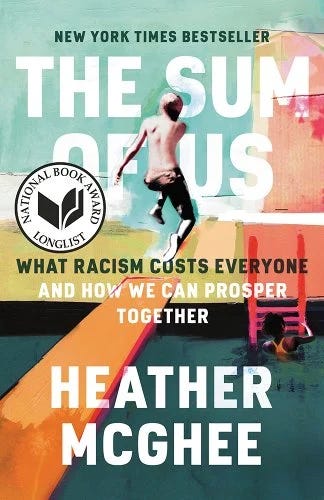
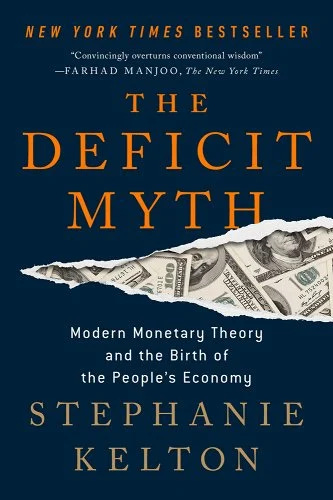
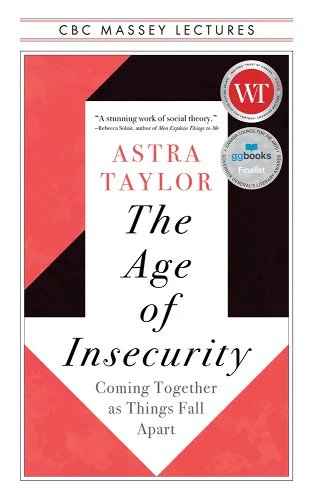
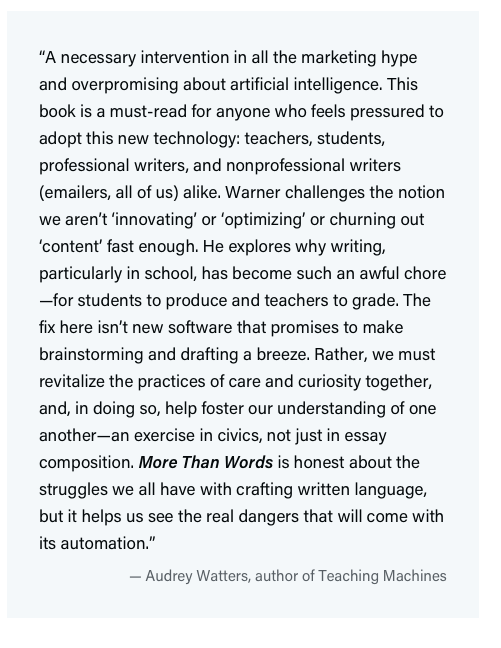





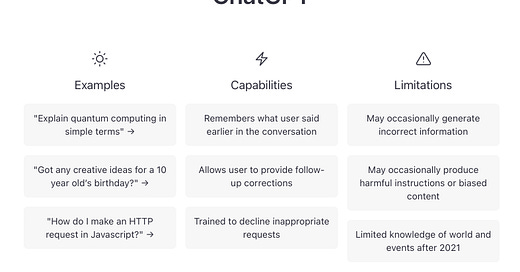

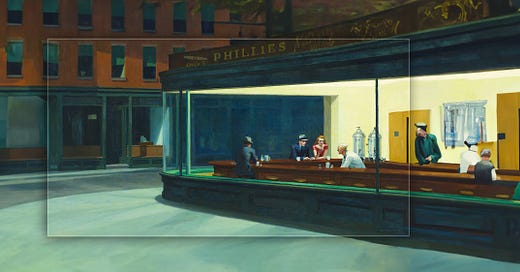

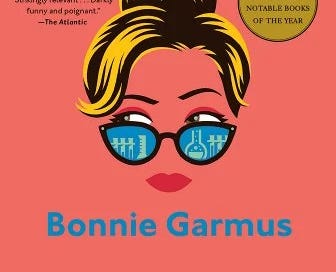

Barbara Ehrenreich’s “Nickeled and Dimed” is as relevant today as when it was published in the late 1990s. The rich have gotten even more obscenely wealthy and the struggles of the working poor have become even more pronounced.
I read that NYT article about male writers. I left a comment that basically men needed to start reading more novels. According to statistics they really aren’t. They seem to read less than women and the books they read tend to be nonfiction, science fiction/fantasy and spy thrillers. I just feel like this is a market forces phenomenon. If they were out there buying literary novels like women are, then there would be more books published for them. Instead they’re listening to Joe Rogan for hours. They could also listen to audiobooks of literary fiction!
There were some pretty unfortunate comments by men. That actually books suck now (because more are written by women I guess) and that why aren’t women forced to read books written by men the way they’re forced to read, say, The Handmaid’s Tale. I mean, I personally read books by men because I am curious and don’t need to be told to do so! I think if men read more novels they might be less reactionary (hooking into the theme of this post).
I will be curious on what your opinion is on this.